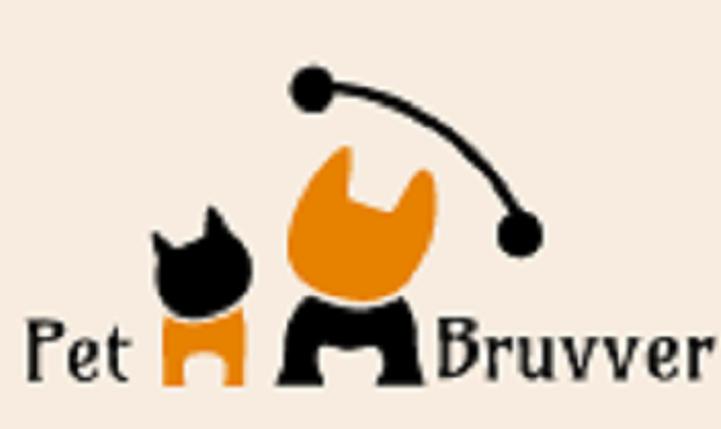Puppies love cheese, there’s no denying it. But can they eat it? The answer may surprise you…
Can Puppies Eat Cheese?
Although most puppies love cheese, it is not the best food for them. Cheese is high in fat and salt, which can be difficult for a puppy to digest. It can also cause an upset stomach and diarrhea. If you do give your puppy cheese, do so in moderation and as a treat, not as a regular part of their diet.
The Benefits of Cheese for Puppies
Cheese can be a great treat for puppies, as it is packed with nutrients and protein. It is also a good source of calcium, which is important for growing bones and teeth. However, cheese should be given in moderation, as it is high in fat and calories.
The Risks of Feeding Cheese to Puppies
Cheese is a dairy product that is generally considered safe for human consumption. However, there are some risks associated with feeding cheese to puppies. The most common concern is that cheese may contain harmful bacteria that can make puppies sick. Another concern is that cheese may contain high levels of fat and calories, which can lead to weight gain in puppies.
Some types of cheese, such as feta and blue cheese, are more likely to contain harmful bacteria than others. It is important to only feed your puppy cheese that has been pasteurized to kill any harmful bacteria. Puppies should also only eat small amounts of cheese as part of a balanced diet. Cheese should not be the only food you feed your puppy, and it should not make up more than 10% of their daily caloric intake.
If you decide to feed your puppy cheese, it is important to monitor them closely for any signs of illness, such as diarrhea or vomiting. If your puppy does become ill after eating cheese, contact your veterinarian immediately.
The Best Cheeses for Puppies
Puppies love cheese! It’s a great way to give them a tasty treat that they’ll love. But not all cheeses are created equal, and some can actually be harmful to puppies. Here are some of the best cheeses for puppies:
Cottage Cheese: Cottage cheese is a great source of protein and calcium for puppies. It’s also low in fat, making it a healthy choice. Just be sure to give your pup cottage cheese that is plain and doesn’t have any added salt or sugar.
Yogurt: Like cottage cheese, yogurt is a good source of protein and calcium for puppies. It can also help settle their stomachs. Be sure to choose a yogurt that is plain and doesn’t have any fruit or sweeteners added. Some brands even make puppy-specific yogurts!
Ricotta Cheese: Ricotta cheese is another good option for puppies. It’s high in protein and low in fat, making it a healthy treat for your pup. Just be sure to give them plain ricotta cheese without any added salt or sugar.
How to Introduce Cheese to Puppies
You can start giving your puppy small amounts of cheese as a treat once he is about 12 weeks old. Watch closely to see how he reacts to it, as some puppies are sensitive to lactose and may develop an upset stomach. To start, offer your puppy a small piece of cheese that he can easily chew and swallow. If he tolerates it well, you can gradually increase the amount of cheese you give him at each meal until he is eating the same amount as an adult dog.
Cheese is a good source of protein and calcium for dogs, and it can be a healthy treat if given in moderation. When introducing cheese to your puppy, be sure to do so slowly and watch for any signs of digestive upset. If your puppy does not seem to tolerate cheese well, there are several types of lactose-free cheese available that may be better tolerated.
How Much Cheese Can Puppies Eat?
Puppies need a high-quality diet to help them grow and develop into healthy adult dogs. While cheese can be a healthy treat for puppies in moderation, there are a few things to keep in mind.
First, puppies are more likely to be lactose intolerant than adult dogs, so it’s important to start with small amounts of cheese and see how your pup tolerates it. Second, choose a cheese that is easy on the stomach and low in fat, such as cottage cheese or mozzarella. Puppies need a lot of calories to support their growth, so higher fat cheeses should be avoided.
Finally, always offer cheese as part of a well-balanced diet. Puppies need plenty of protein, fat, and carbohydrates to fuel their growing bodies. So make sure cheese is just one part of your pup’s overall diet and not the main event!
Cheese Recipes for Puppies
Cheese is a healthy treat for puppies that can be used as a training aid or simply as a delicious snack.
When choosing cheese for your puppy, it is important to select a variety that is low in salt and easy to digest. Some good options include cottage cheese, Ricotta cheese, and mozzarella cheese.
Here are some cheesy recipes that your puppy is sure to love:
-Cottage Cheese Puppy Pops: Combine cottage cheese, yogurt, and a little bit of honey. Pour mixture into popsicle molds and freeze. Give your pup one of these cool and refreshing pops on a hot day.
-Ricotta Cheese and Banana Puppy Treats: Mix together Ricotta cheese, mashed banana, and oats. Roll mixture into little balls and store in the refrigerator. These tasty treats can be given as training rewards or simply as an anytime snack.
-Mozzarella Cheese Sticks: Cut mozzarella cheese into small sticks. Spread some flour on a plate and then coat the cheese sticks in the flour. Next, dip the cheese sticks in beaten eggs. Finally, coat them with bread crumbs. Fry the sticks in hot oil until they are golden brown and crispy. Let them cool before giving them to your pup as a special treat.
Troubleshooting Tips for Feeding Cheese to Puppies
One of the most common questions we get here at Puppy Paws is whether or not puppies can eat cheese. The answer is a resounding YES! Puppies can, and should, eat cheese. However, there are a few things you need to keep in mind when feeding cheese to your pup.
First of all, it’s important to choose the right cheese for your pup. Not all cheese is created equal, and some types are actually better for puppies than others. When in doubt, consult your puppy’s veterinarian for guidance on which types of cheese are best for your pup.
Once you’ve selected the right cheese for your puppy, it’s time to start troubleshooting. One of the most common problems we see with puppies and cheese is that they simply don’t like it. This can be frustrating, but don’t worry – there are a few things you can do to fix this issue.
First, make sure you’re offering the cheese in small pieces. Puppies have small mouths and appetites, so offering them large pieces of cheese is likely to be overwhelming (and off-putting). Smaller pieces will be much more appealing to your pup – and easier for them to eat.
If your puppy still isn’t interested in the cheese, try adding it to their food or treats as a topping or ingredient. This often does the trick – especially if your puppy loves their food or treats!
Finally, if your puppy really doesn’t seem to like cheese no matter what you do, don’t force them to eat it. There are plenty of other healthy foods that they can (and should) eat – Cheese just might not be their favorite.


